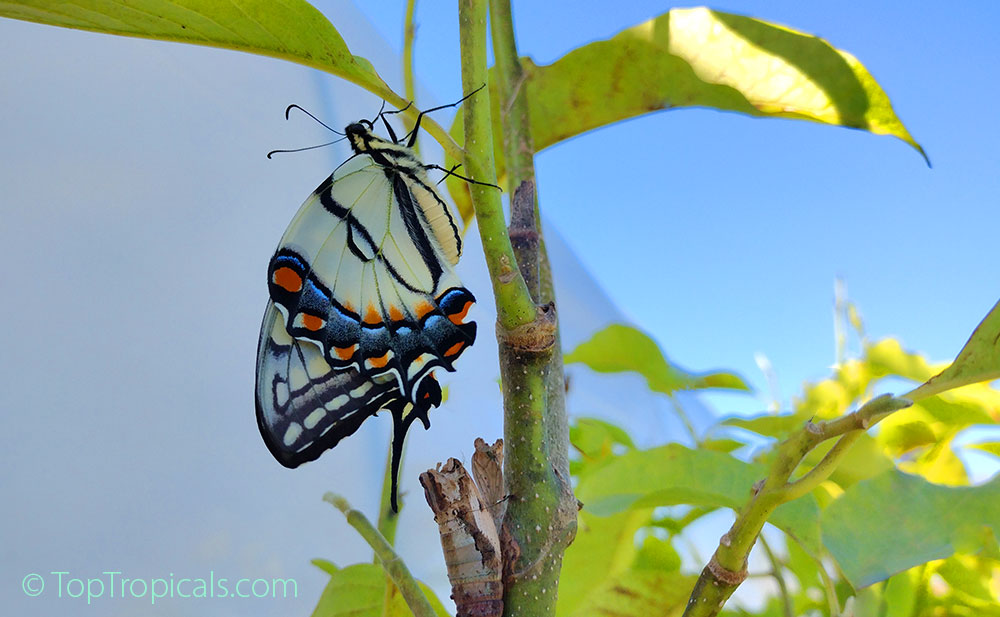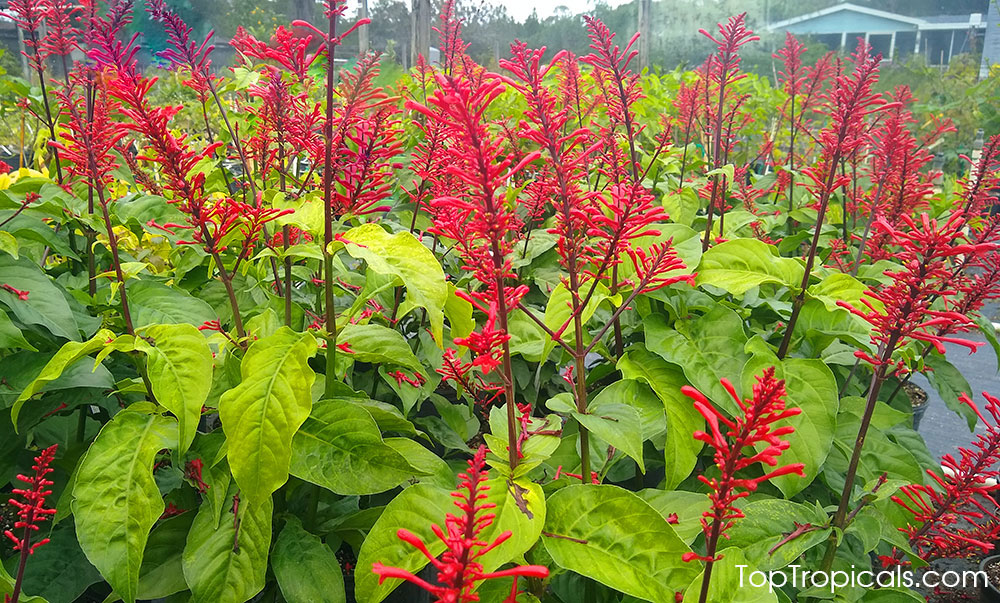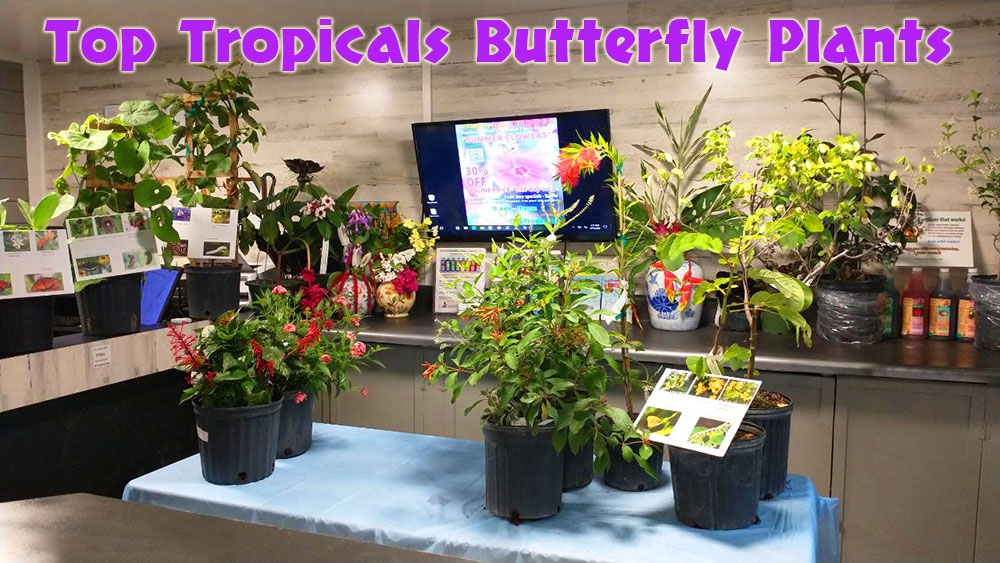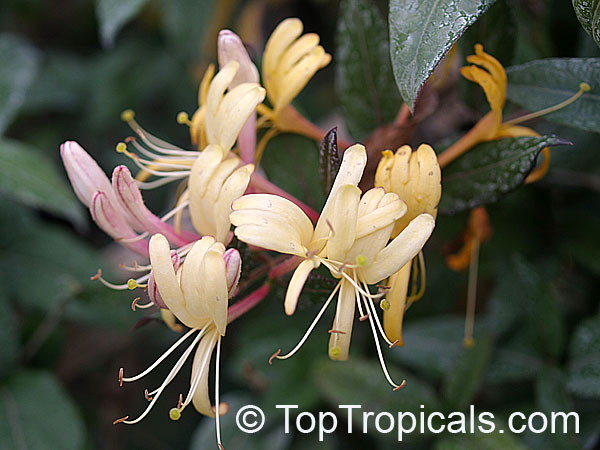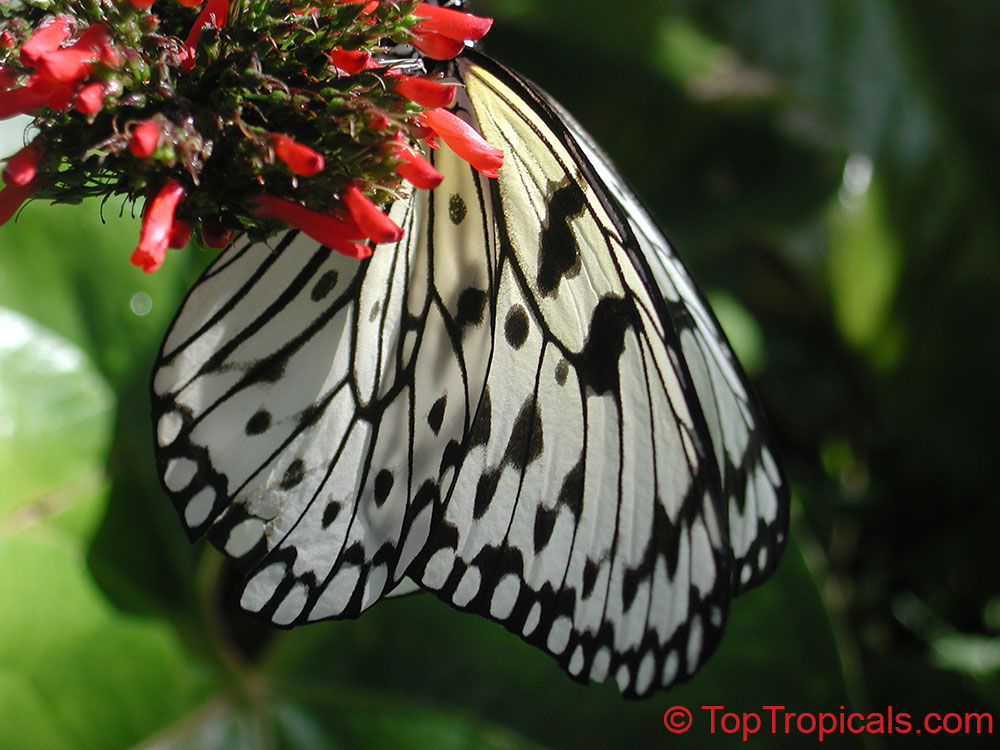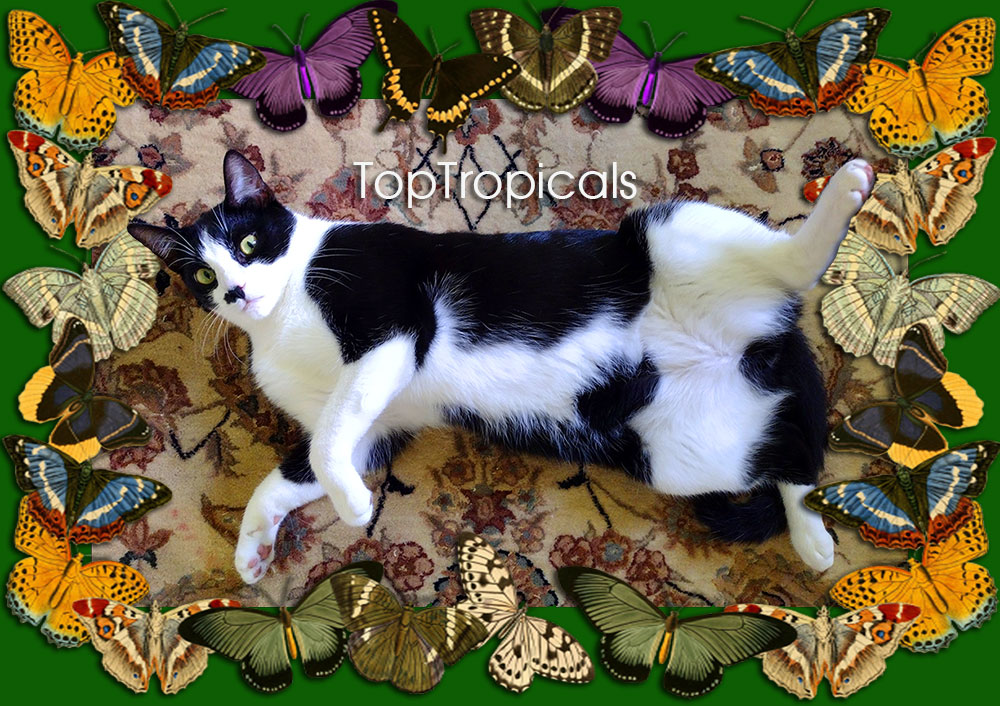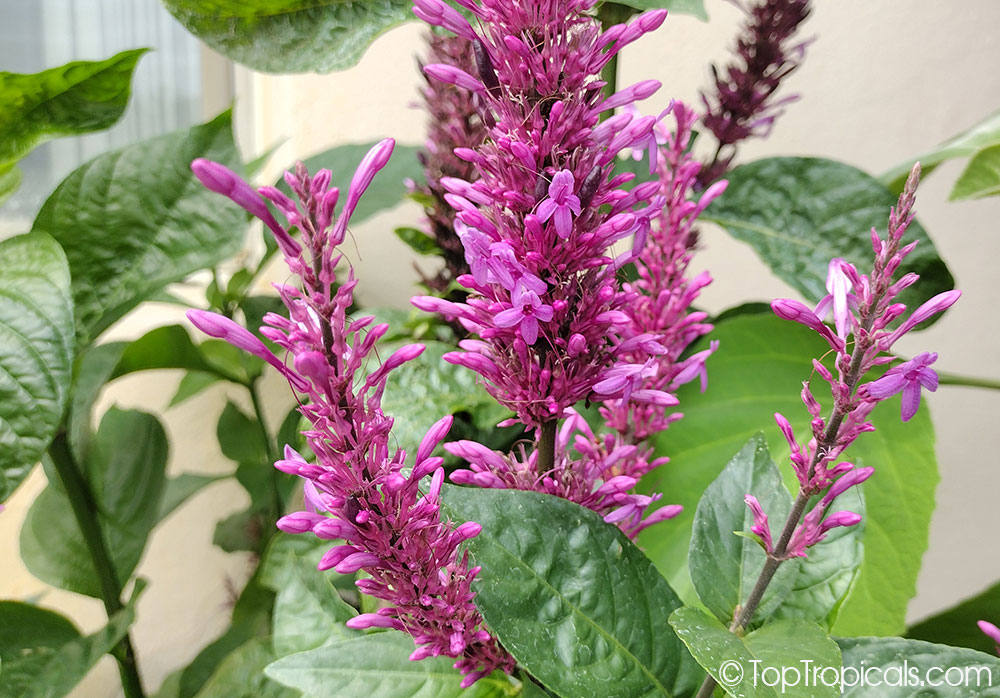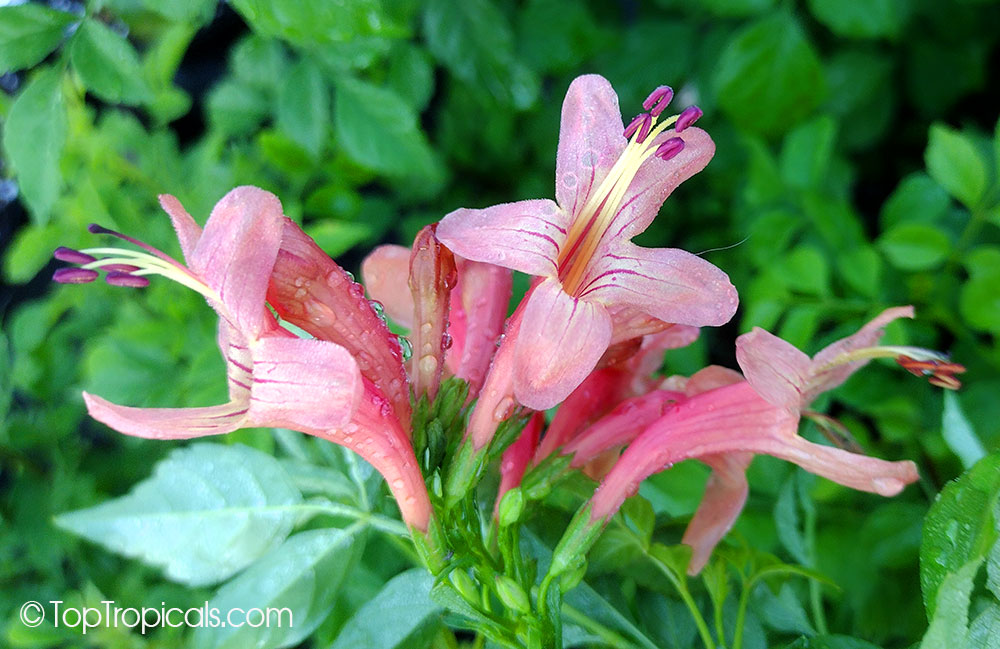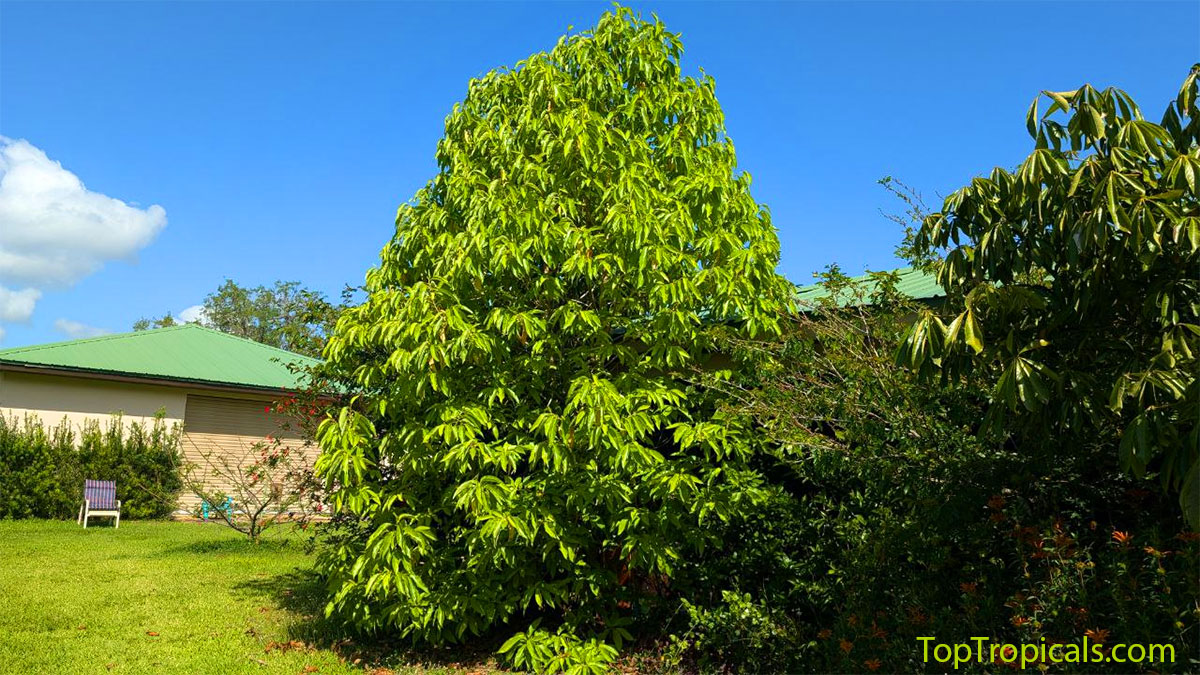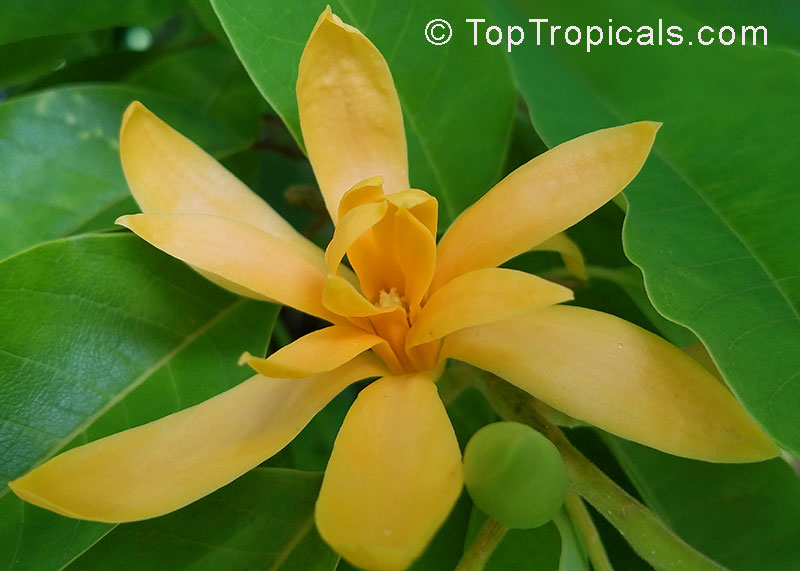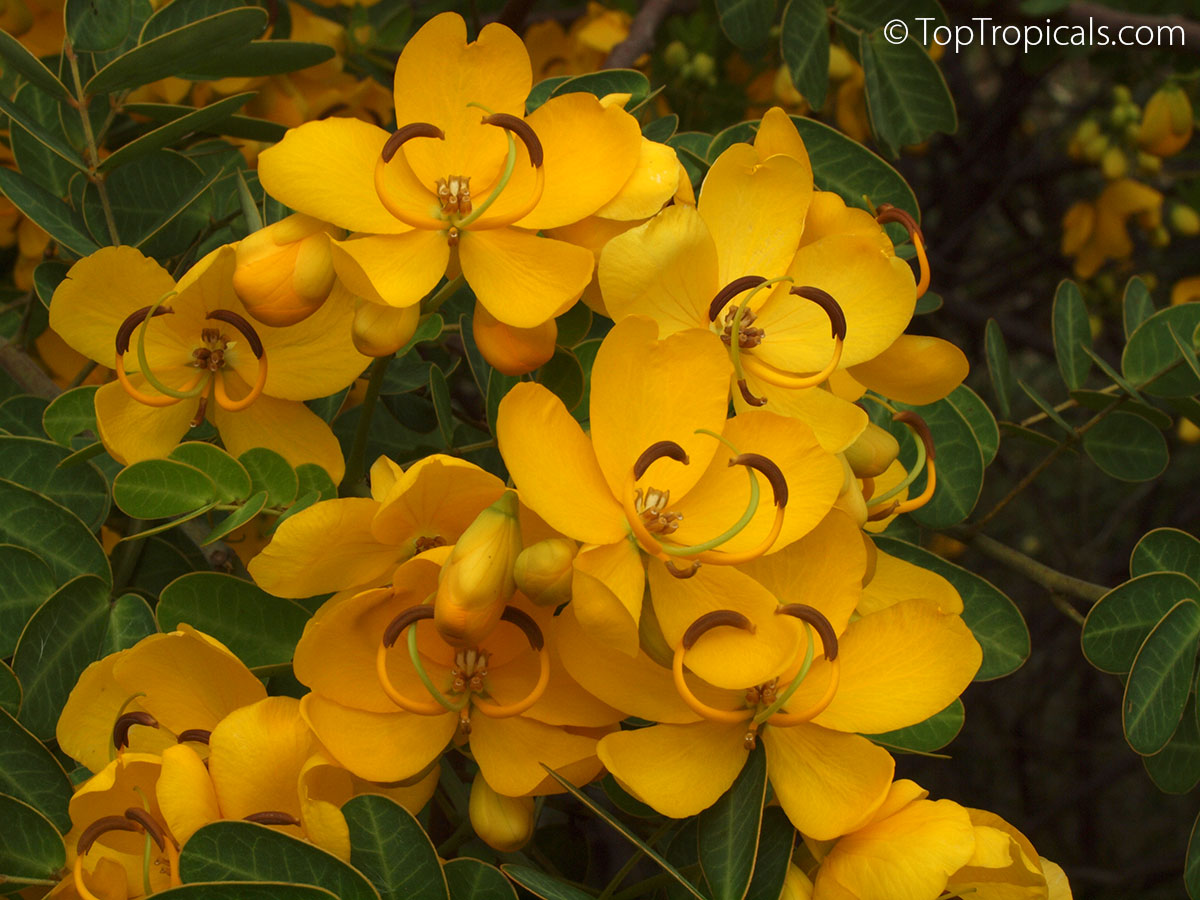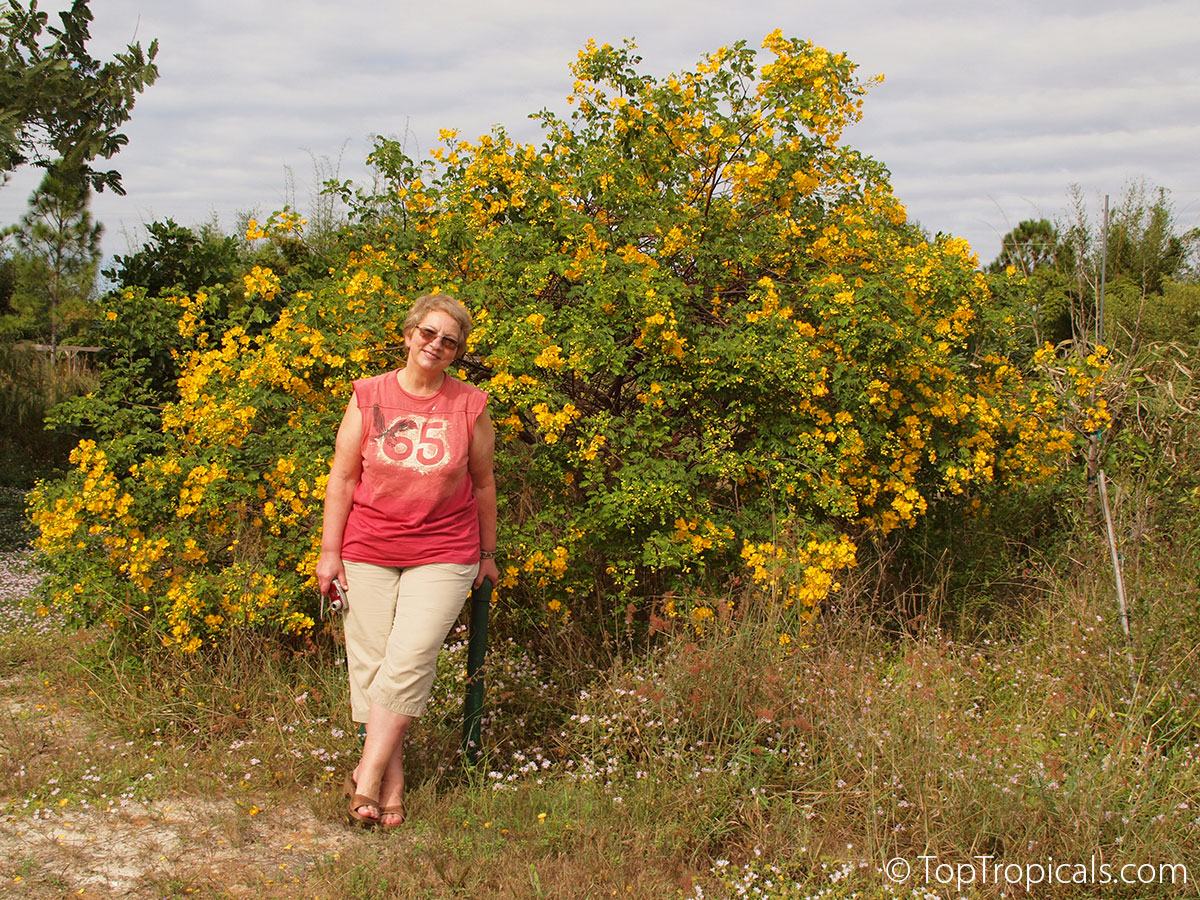Garden Blog - Top Tropicals
Date:
Top 5 butterfly attractors
"Just when the caterpillar thought the world was over,
it became a butterfly"
Chuang Tzu (Taoist philosopher)
In the photo: yesterday we watched a butterfly born on one of our Champaka trees!
Q: What are the best butterfly attracting plants for a Southern garden?
A: If you love butterflies and if you enjoy
having nature around your home, then plant a butterfly garden. Florida is a perfect place to create a year round and
fully functioning butterfly garden. Caterpillars, which transform into
butterflies, require special kinds of plants to feed upon and these plants grow
extremely well in the South Florida and other subtropical areas. Below are the
top five winners that butterflies appreciate the most. Besides, remember That
all yellow flowers are attractive to them, for example Cassias. Butterflies like the Sun and everything that looks like the
Sun!
1. Calotropis
gigantea - Giant milkweed, Arka
2. Odontonema
cuspidatum - Firespike
3. Plumbago
auriculata Imperial Blue
4. Rondeletia
leucophylla - Panama Rose
5. Asclepias
curassavica - Red Milkweed, Butterfly Weed
Read more about Butterfly garden:
The Milkweed and
the Monarch, how to raise your own
Musings of a butterfly gardener about the milkweed bug
Plants that attract butterflies and hummingbirds
In the photo: Odontonema cuspidatum - Firespike
Date:
NEW
VIDEO:
ABC7 Fort Myers News:
Butterfly plants at Top Tropicals
Butterfly plants... what can be more romantic and sweet in your garden!
Watch the news segment by Rachel Anderson for ABC-7: Butterfly plants at Top Tropicals.
"...Spring has sprung, and if you're looking to spruce up your
garden, Top Tropicals in Fort Myers has you covered! They have hundreds of exotic
plants, fruit trees, fragrant flowers and plants that will attract
butterflies to your garden!
If you're looking for a Mother's Day gift, plants are gifts that keep
on giving!.."
In the photo: Butterfly plants display in Top Tropicals office. Come and see our large selection of butterfly attractors in the nursery!
Subscribe to our Channel:
Stay updated with TopTropicals Videos by subscribing to our channel at YouTube.com/TopTropicals and get our latest video news of what is fruiting and blooming!
In the photo: Lonicera japonica - Japanese Honeysuckle - a garden favorite, hardy, fast growing vine. Jasmine-sweet scented flowers attract butterflies, and hummingbirds, and berries attract birds!
Date:
Attracting butterflies
Q: How to attract more butterflies to my garden?
A: Attracting butterflies to your garden can be a fun and rewarding experience. Here are some tips to help you create a butterfly-friendly environment.
1. Choose the right plants: Butterflies are attracted to nectar-producing flowers such as milkweeds, butterfly bushes. Plant lots of bright flowers, especially of yellow and pink colors like some cassias which seem to be the pleasant to butterfly's eye. Use a variety of flowers to attract different species of butterflies. This is a full list of butterfly-attracting plants.
2. Provide food for caterpillars: Butterflies lay their eggs on specific host plants that caterpillars will eat. For example, monarch butterflies lay their eggs on milkweed. Passion flower is also a great butterfly host, but be prepared to sacrifice some leaves!
3. Provide a water source: Butterflies need a source of water to drink from. A shallow dish or birdbath with rocks in it will provide a place for butterflies to rest and drink.
4. Avoid using pesticides: Pesticides can harm butterflies and other beneficial insects. Try using natural methods to control pests in your garden, such as companion planting and hand-picking.
5. Create a sunny spot: Butterflies love warm, sunny spots. Plant your butterfly garden in an area that receives at least six hours of direct sunlight each day.
6. Add a butterfly house: A butterfly house can provide shelter for butterflies during bad weather and at night.
In the photo: Odontonema callistachyum - Lavender Butterfly Bush. Showy bright lavender flowers, butterfly attractor. Blooms in both sun or shade.
In the photo: Tecomaria capensis Apricot - Hammers Rose, Apricot Tecoma, Cape Honeysuckle. Very fast growing, it has attractive, light green foliage and frequent displays of long, tubular flowers that may be apricot or orange at the ends of the stems. Great for a privacy hedge that attracts butterflies!
Date:
How to Plant a Perfume Hedge
And What Does a Champaka Tree Look Like?
Practical Growing Guide
Photo above: Magnolia champaka (Joy Perfume tree) in landscape. This tree was planted 3 years ago from a 7-gal pot. The tree is now 5 years old from seed and has been covered with flowers for two seasons in a row. Check out short video.
Q: How big does the Champaka tree grow, tall and wide? And what is the growth habit? I'm thinking of planting a perfume hedge along my property with several of these beautiful trees (8-10 trees). How far apart should I plant them and what container size should I start with? And how soon will they start blooming?
A: Magnolia champaka, or Joy Perfume tree is the most desirable perfume tree for Southern landscapes - and a Signature Plant of Top Tropicals! You can see several of these stunning trees around our B-Farm in Sebring, including the one right by the office front door.
The flowers are used to make the world's most expensive perfume, Joy - and they smell like fruity bubble gum... you won't be able to stop sticking your nose in this flower! The Joy Perfume Tree blooms on and off year-round.
The lemon-lime, light green leaves are lush, soft, and tropical-looking, with a unique and beautiful color.
The Champaka tree has a striking columnar shape and becomes very bushy and full when established - whether in a pot with a proper fertilizer program or in the ground. In Florida, mature trees can reach 20-25 ft tall, although in true tropical environments they may grow much taller. Check out short video of a mature tree. It doesn't get very wide, and if you are planning to plant several trees as a perfume hedge, you can space them as close as 10 ft apart. This tree - light green, fragrant, evergreen, fast-growing, bushy, and dense - makes the perfect perfume hedge!
Champaka trees begin flowering within 2-3 years from seed. Singing birds love this tree and often build nests in its bushy crown during spring. The tree is relatively cold-hardy and can withstand light freeze for short periods once established. Just make sure to provide regular watering.
We have beautiful Champaka trees in all sizes:
3 gal pot:
3-4 ft tall - ready to bloom within a year, can be shipped
7 gal pot: 5-6
ft tall - ready to bloom, can be shipped
15 gal pot: 7-8
ft tall - have already bloomed, pick up or delivery*
25 gal pot: 10
ft tall - have already bloomed, pick up or delivery*
* Free delivery for qualified orders - contact us for estimate
Plant Your Perfume Hedge Today!
Imagine walking along a path lined with Champaka trees - Joy -fragrant blossoms drifting through the air, lush green leaves swaying gently, and birds singing above. With just a few trees, you can create your own heavenly hedge of joy and fragrance. Let your garden bloom with elegance, beauty, and the world's most luxurious scent!
Date:
Butterfly Garden from Anna Banana
Butterfly facts
1. There are approximately 20,000 different species of
butterflies, the largest of which is the Queen Alexandra
Birdwing with a wingspan of 11 inches.
2. Female butterflies can lay over 1000 eggs during their
short lifetime.
3. Butterflies lay their eggs on host plants which usually
hatch within a few days, then turning into caterpillars.
The caterpillar will then eat until it sheds it's skin
several times, called instars, finally emerging from the
chrysalis as a beautiful butterfly.
4. Butterflies are born to breed, their goal being to mate
and begin the cycle again. Most live only a few days
except the Monarch which can live up to six months.
5. Monarch butterflies migrate to Mexico every fall and
remain there until spring when they make the return
migration.
6. Due to the continuing destruction of the rain forests,
where the largest population of butterflies are found,
their numbers are dwindling. We encourage you to plant a
butterfly garden!!
Remember:
- A sunny, less windy location is best, however, Zebras
love to float in the shade of bushes and trees.
- The more host and nectar plants you have, the more
butterflies will be attracted to your garden.
- Butterflies "puddle". They like a wet sandy area where
they congregate and sip minerals and nutrients from the
wet sand and water.
- Rocks to rest and enjoy their beautiful garden, and
don't forget a bench or hammock for yourself.
FREE butterfly garden guide from Anna Banana
For our local Florida customers, it is a perfect time now
to start a garden with plants for butterflies that will
appear first thing in Spring. Establish these plants now
for the Spring blooms that will attract the Beauty into
your garden!
Stop by our Garden Center to check out our Butterfly Plants display, or
simply call Anna Banana for a free consultation on
Butterfly Garden at 239-771-8081.
Hurry up while butterfly plants are on 4-day sale!
What are the best butterfly attracting plants for a Southern garden?
Asclepias - Milkweed, butterfly attractor
If you love butterflies and if you enjoy having nature around your home, then plant a butterfly garden. Caterpillars, which transform into butterflies, require special kinds of plants to feed upon. Below are the top five winners that butterflies appreciate the most. Besides, remember That all yellow flowers are attractive to butterflies, for example Cassias. Butterflies like the Sun and everything that looks like the Sun! 🌞
🏆 5 best butterfly attractors:
1. Calotropis gigantea - Giant milkweed, Arka
2. Odontonema cuspidatum - Firespike
3. Plumbago - blue, white and red
4. Rondeletia leucophylla - Panama Rose
5. Asclepias - Milkweed
💻 Learn more:
🎥 ABC-7: Butterfly plants at Top Tropicals
The Milkweed and the Monarch, how to raise your own
Musings of a butterfly gardener about the milkweed bug
Plants that attract butterflies and hummingbirds
🛒 Shop butterfly plants
#Butterfly_Plants
. . . . . . . . . . . . . . . . . . . . . . . .
🔴 Join 👉 TopTropicals
. . . . . . . . . . . . . . . . . . . . . . . .
Date:
Butterfly Bush: Fast, Pretty, Low Maintenance...
Five unbeatable reasons to plant Butterfly Cassia
Q: I am trying to find some easy flowering shrub to screen the ugly corner of my neighbor's yard, can you suggest something fast growing and pretty?
A: One of our favorite flowering shrubs in Florida is the Cassia bicapsularis, commonly known as Scrambled Egg Bush or Butterfly Bush. It is one of the most desirable plants for the southern landscape. It has all the benefits any gardener may dream of, whether a beginner or an expert:
1. Very fast growing, can screen unwanted views and create a beautiful flowering hedge. Cassia bicapsularis is known for its rapid growth, making it an excellent choice for quickly transforming an unsightly corner into a vibrant and lush area. Its dense foliage and attractive yellow blooms add both beauty and privacy to your outdoor space.
2. Easy to grow, not fussy about soil or water, drought and flood tolerant, cold tolerant. Butterfly Bush is incredibly adaptable and resilient. It thrives in a variety of soil types, is not demanding when it comes to water, and can withstand both drought and occasional flooding. Additionally, it is cold tolerant and can withstand occasional frosts once established.
3. Blooms for many months, featuring especially in winter flowers from Fall to spring. Very pretty, large "sunny" flowers resembling bright yellow butterflies, hence the name. It is a generous bloomer, gracing your garden with vibrant yellow flowers for an extended period, particularly from fall to spring. The large, sunny blooms not only add visual appeal but also attract pollinators, enhancing the ecological balance of your garden.
4. Attracts lots of butterflies. As the common name suggests, the Butterfly Bush is a magnet for butterflies. If you enjoy the presence of these beautiful winged creatures in your garden, planting Cassia bicapsularis is an excellent way to encourage and support butterfly populations.
5. Low maintenance. Butterfly Bush can be trimmed and controlled at the desired shape if needed, but if you have room for a big bush in a full sun area - just let it go and it will form a nice dense bush without any pruning: this shrub is a low-maintenance delight. While it can be pruned and shaped according to your preferences, it also flourishes when left to grow naturally. Its ability to form a dense and attractive bush without constant pruning makes it an ideal choice for those seeking a fuss-free gardening experience.
If you're looking for a fast-growing, low-maintenance, and aesthetically pleasing solution to screen an unsightly corner, Cassia bicapsularis is an unbeatable choice. It ticks all the boxes for a beautiful and resilient flowering shrub in the southern landscape.
"...Without a doubt, Butterfly Cassia became one of my favorite plants during my visit to Florida for Christmas a few years ago. I only wish I could have taken it back home with me to Latvia. If only my windowsill hadn't already reached its greenhouse capacity!.." - Alex Butova.
To see more options for flowering shrubs, check out the reference chart Hedges with Benefits Chart.
What is the flower of the most expensive perfume?
Champaka, Joy Perfume Tree - Magnolia (Michelia) champaca
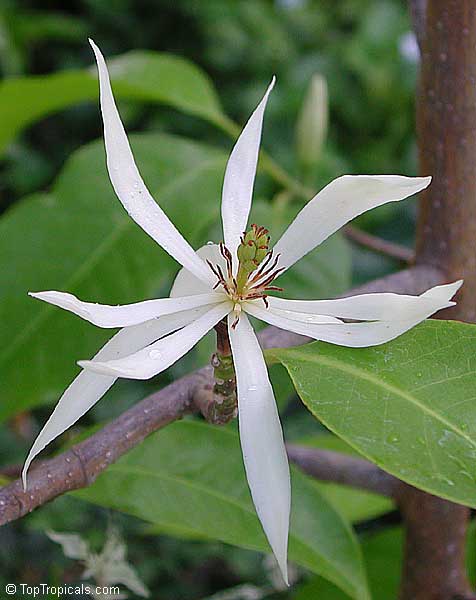
Champaka, Joy Perfume Tree - Magnolia (Michelia) champaca - white flower Alba
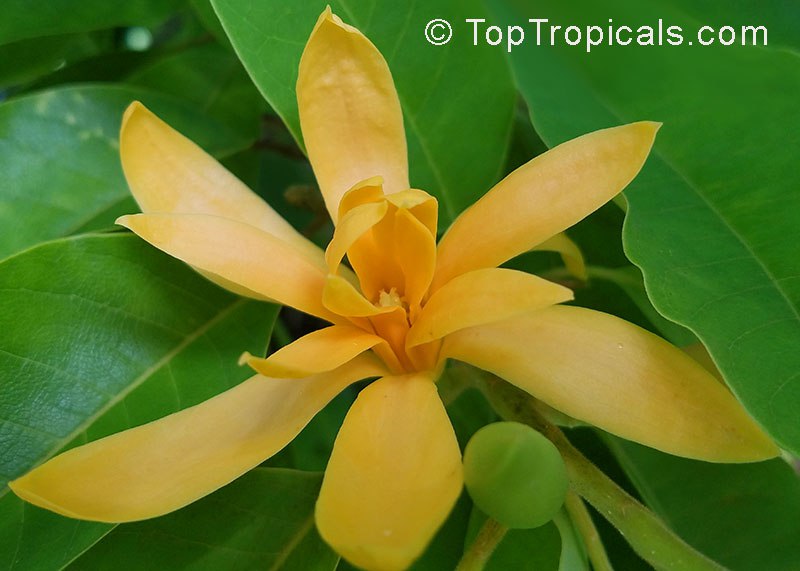
Champaka, Joy Perfume Tree - Magnolia (Michelia) champaca
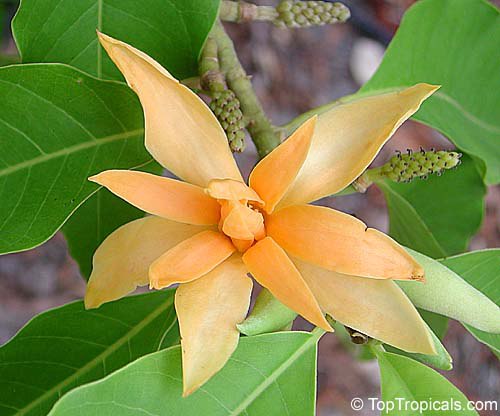
Champaka, Joy Perfume Tree - Magnolia (Michelia) champaca
The flowers from this tree - Magnolia (Michelia) champaca - are used to make the world's most expensive perfume 'Joy' and smell like fruity bubble gum 🎀... you can't stop sticking your nose in this flower!
👼 Sacred tree of India and SE Asia
flowers exude a divine fragrance that is exceedingly pleasing to the Gods... and women
🌳 Perfect small landscape tree of a columnar shape. Ideal for containers.
🌡 Relatively cold hardy
💎 Rare collectible, a gem of any plant collection!
📚 Learn more about Champaka
🛒 Shop Champaka - Joy Perfume Tree
#Perfume_Plants #Fun_Facts #Container_Garden #Trees
🏵 TopTropicals
What does Joy Perfume flower smell like?
Magnolia champaca, the Joy Perfume Tree in full bloom
- 🏵 Meet Magnolia champaca, the Joy Perfume Tree - the most desirable perfume tree for Southern gardens and a Signature Plant of Top Tropicals!
- 🏵 At our Farm in Sebring, these stunning trees bloom almost year-round, filling the air with a fruity, enchanting fragrance.
- 🏵 Yes, this is the flower used to make the world's most expensive perfume - Joy! And it smells like fruity bubble gum... you won’t stop sniffing it!
- 🏵 With lush, lemon-lime leaves and a tall, elegant shape, Champaka is as beautiful as it is fragrant.
- 🏵 Visit Top Tropicals in Fort Myers or Sebring and bring home your very own Joy Perfume Tree today!
- 🏵 We have beautiful Champaka trees in all sizes:
3 gal pot: 3-4 ft tall - ready to bloom within a year, can be shipped
7 gal pot: 5-6 ft tall - ready to bloom, can be shipped
15 gal pot: 7-8 ft tall - have already bloomed, pick up or delivery*
25 gal pot: 10 ft tall - have already bloomed, pick up or delivery*
* Free delivery for qualified orders
🎥 These Champaka trees in the video are 5 years old (3 years in the ground) and keep blooming for the last 3 years!
🛒 Claim Your Joy Today - Own Your Perfume Champaka!
📚 Learn more from previous posts:
- 🟡 What does a mature Champaka Tree look like? Practical Growing Guide
- 🟡How to grow Magnolia champaca and get some Joy
- 🟡When does Champaka tree start blooming?
- 🟡Why Champaka is such a popular perfume tree
- 🟡Flower of the most expensive perfume
- 🟡White Champaka
- 🟡Article about Champaka
#Perfume_Plants #Container_Garden #Trees
🔴 Join 👉 TopTropicals
Why gardeners are swapping white Butterfly Ginger for this yellow giant
Hedychium flavum x coronarium, Yellow Butterfly Ginger, Nardo Ginger Lily
Hedychium flavum x coronarium, Yellow Butterfly Ginger, Nardo Ginger Lily - this variety grow fast and much bigger and vigorous than classic White Butterfly Ginger. More flowers - more fragrance!
What makes it especially nice:
- If you love fragrance in your garden, this plant delivers - the scent from the flower spikes can be wonderfully strong in warm evenings.
- The yellow-toned flowers are a subtle variation on the classic white butterfly ginger, so you get the same delightful form and perfume but with a twist of color.
- Bold foliage gives a tropical look - great for adding height, texture and a sense of lushness.
- Because it grows somewhat larger and more vigorous, it can create a dramatic feature rather than just a filler plant. Make sure you have enough room, especially if planted near other plants.
- Because the flowers last only a day each (in the white butterfly ginger, each flower lasts about one day) according to one source, you’ll see new blooms and old blooms in succession rather than long-lasting individual flowers.
- This yellow-butterfly ginger hybrid ticks all the boxes of a showy, fragrant, tropical-style plant with personality. Give it the space, moisture and good soil it craves, and you’ll be rewarded with lush leaves and clusters of softly yellow, scented blooms that draw in attention - and sniffers - all summer long!
🛒 Plant Perfumed Butterfly Ginger
📚Learn more:
#Shade_Garden #Perfume_Plants
🟢 Join 👉 TopTropicals
